cancer
-
@Jakeandpace literally the same as me. The past few days I have been taking thiamine, b complex and aspirin, along with k2, E and D and my energy levels and mental clarity / happiness are noticeably elevated. I don’t think Haidut is bullshitting about aspirin.
-
@raytreats Good to hear my man. I am opting for lower doses since doing the big ones for a while. I don't think Niacinamide in such high doses is beneficial. I much prefer the smaller ones spread throughout the day. 2g in one dose made me feel very weird like I wasn't really having any thoughts, just purely in the moment. Kind of odd, I didn't like it.
-
Methionine Dependence of Cancer
"[..]even though flux through polyamine synthesis needs to be high, especially in dividing cells, neither the methionine cycle nor polyamine synthesis consumes methionine. However, methionine is removed by protein synthesis and indirectly through the transsulfuration pathway leading to cysteine synthesis and feeding antioxidant production (
Figure 2A).""Most cancer cells cannot proliferate in medium where methionine is replaced by homocysteine, even though they readily synthesize methionine from homocysteine (
Figure 1).""Several cancer cell lines and tumors depend on exogenous serine. This is surprising because serine can usually be synthesized from glucose in sufficient amounts via the glycolysis intermediate 3-phosphoglycerate [40,41]. However, the increased demand of cancer cells on glycolysis for energy production may divert the flux of 3-phosphoglycerate from serine synthesis to glycolysis. Serine requirement for cancer cell proliferation may thus link the Warburg and Hoffman effects by connecting glycolytic flux with SAM synthesis."
"Preclinical models have shown promise with dietary methionine restriction significantly suppressing tumor growth in multiple models, which include both solid tumors and blood cancers [59,65,66,67,68,69]."
Serine synthesis | Eigenbrodt and Mazurek
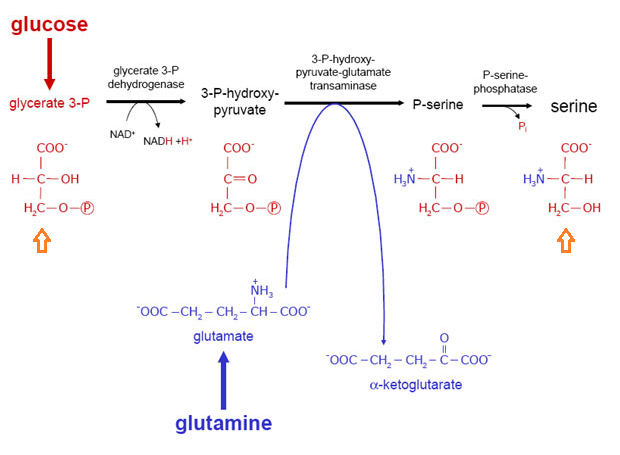
Serine hydroxymethyltransferase | Proteopedia

I had thought of depleting methionine by overwhelming sulfotransferases, increasing its internal consumption to derive sulfate for conjugation of other molecules, but it seems that it's not viable and the body switches to glucuronidation when needed.
Human Sulfotransferases and Their Role in Chemical Metabolism
"Many of the substrates metabolized by sulfotransferases are also substrates for UDP-glururonosyltransferases, and in this context, the former system has generally been considered a high-affinity, low-capacity pathway, whereas the latter system is considered a low-affinity, high-capacity pathway (Burchell and Coughtrie, 1997). This suggests that SULTs may be more important than UDP-glucuronosyltransferases in the metabolism of chemicals via low-level exposure from the environment or through food consumption."
"[..]the expression of SULTs in humans has been shown to exhibit a pronounced extra hepatic pattern, whereas in rodents it appears to be predominantly hepatic (Eisenhofer et al., 1999, Hempel et al., 2005)."
It must be best for the methionine restriction to affect its concentration in circulation (or else cells keep acquiring it) and to moderate the one-carbon donors that promote its regeneration.
I remember a discussion on the following publication that Bulgaria brought up on the 'amino acid supplementation' thread of the Garrey Smeat Forum, and it shows that it's possible to be extreme about it:
"A recent study designed to quantify dietary methionine requirements in normal subjects sheds light on this issue (22). In that study, stable isotope methods were used to measure obligatory methionine oxidation in normal subjects on a diet completely devoid of sulfur amino acids (methionine and cysteine) for 5 days. Although somewhat controversial (23), obligatory oxidation rates are considered by many to represent the minimum requirement for amino acids, that is, the amount that is oxidized despite maximal body conservation. The obligatory oxidative loss of methionine was 13 mg/kg/ day in that study (22). Patients in our trial, who were restricted to 2 mg methionine/kg/day, therefore, consumed 11 mg/kg/day less than the minimum requirement. However, they consumed adequate amounts of cysteine, which is present in Hominex-2. They therefore may have had obligatory methionine oxidation rates <13 mg/kg/day. The fact that all patients reversibly lost weight, despite what would normally be considered adequate energy and protein intake, may actually be encouraging, since it confirms that patients adhered to the diet. The basic premise of this strategy is that dietary methionine restriction will have a greater deleterious effect on tumors than on normal host tissues."
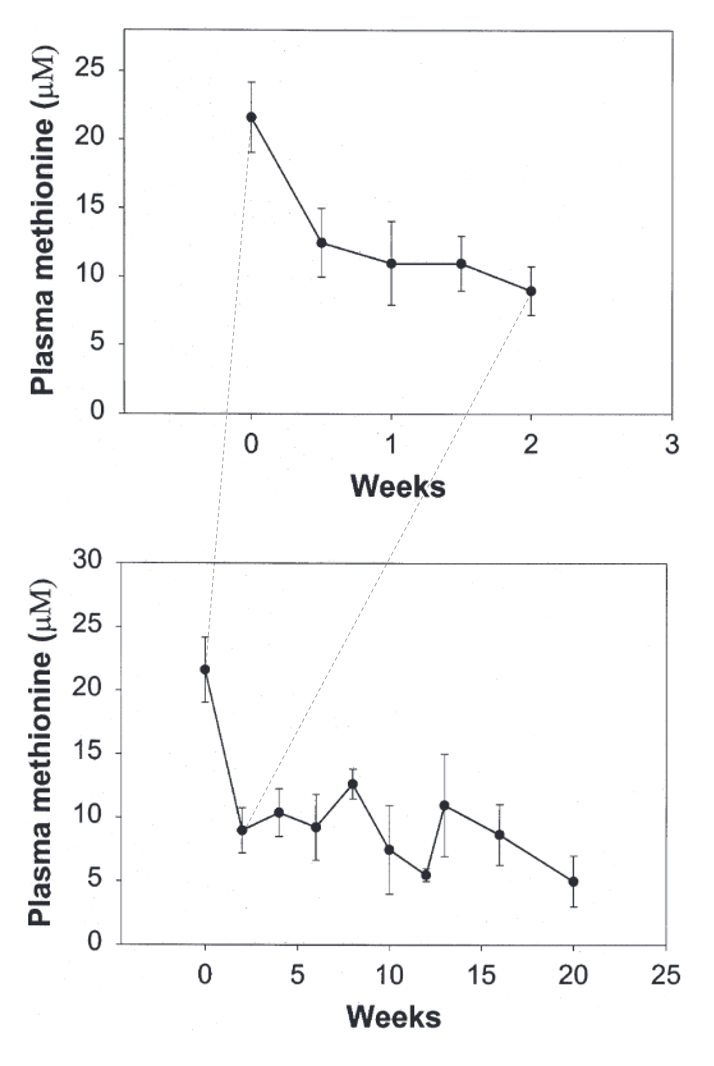
The effect was achieved with dietary restriction, without involving methioninase.
-
@Ecstatic_Hamster said in cancer:
@gugenmungus thanks. Makes a lot of sense. People who get high fevers sometimes get rid of cancer. Sauna would be very good.
i don't remember where but i distinctly recall reading a research summary about mice with cancerous tumors. They were cut open, low heat was applied directly to the tumors raising the localized temps by just a few degrees. They were then sutured back up and the tumors were later absorbed by their bodies, gone for good.
Just the fact that our body can raise it's own temp to "cure" certain ailments is pretty amazing imo.
-
@Ecstatic_Hamster said in cancer:
A plant based diet is very helpful because it lowers methionine and lowering methionine is a very easy and useful way to slow or stop tumor growth and support over all health.
How would a plant based diet look in context of general Peaty dietary advice? How would one get enough protein?
-
@DonkeyDude said in cancer:
@Ecstatic_Hamster said in cancer:
A plant based diet is very helpful because it lowers methionine and lowering methionine is a very easy and useful way to slow or stop tumor growth and support over all health.
How would a plant based diet look in context of general Peaty dietary advice? How would one get enough protein?
In an interview Dr Peat was asked about limiting his protein to 50g he said it was difficult to do especially with drinking a gallon or so of orange juice. I was confused because I couldn’t imagine how orange juice would impact protein intake. So, I looked up protein content of orange juice – I was shocked to discover that a gallon of orange juice contained around 27grams of protein.
-
@Peatly but this is a LOT of orange juice for a still paltry amount of protein, isn't it? I can't imagine that even many Peaters drink that much of the stuff.
-
@DonkeyDude I know. I was just demonstrating that Dr. Peat was struggling to keep protein at 50g/day. The point is that fruits do have protein.
Ray talking about potatoes as a good source of protein
“Well, potatoes are the best vegetable protein known. They're better than eggs in terms of quality.”
"Even though the amino acids seem to be equivalent to protein, it turns out that potatoes are infinitely better than beans as a source of protein. But that requires, either of those require that your intestine be in fairly good health because the complex carbohydrates of either of those can support bacterial growth if you have a sluggish digestion." Source
-
I'm not sure if methionine restriction would be enough to deplete methionine as shown above, the person might need to make it the limiting amino acid when others are adequate, as suggested in Bulgaria's thread, and combine with frequent smaller meals to control excess tissues catabolism. An example of search query:
"protein hypercatabolism" glucose
Differences in cell death in methionine versus cysteine depletion
-
@Jennifer said in New "Mission" of RPF:
As far as what’s next, mainly caring for my dad and starting my orchard. I wouldn’t know what to log about now that I’ve achieved my health goals. My thyroid crashed around the same time my dad got his cancer diagnosis, but a simple course correction, i.e., giving into intense cravings for fruit, turned things right around.
What can you share about the situation of your dad? What have you tried so far that did and didn't help?
-
@Amazoniac, the results of his biopsy showed he has a Gleason score of 7 and the urologist said he has a high volume of cancer cells, but doesn’t know if they have spread beyond the prostate so a CT scan was ordered and now we’re just waiting on insurance to approve the scan for the office to schedule it.
Since he’s hypo (low temps, pulse in the mid 50s, cold extremities, doesn’t sweat/has a low evaporation rate etc.), I have him supplementing thyroid and because the standard treatment for prostate cancer involves “androgen deprivation” and I’m of the belief that estrogen is a factor in the disease, Progest-E.
I finally convinced him to give up his last dietary vice—Coffee Mate creamer with soy oil—and I make most of his meals from scratch so his diet overall is low in PUFA and includes pastured meat, seafood, dairy, eggs, wheat and small amounts of fruit and veggies, mainly grapes, corn, peas, root veggies and herbs.
I think a huge factor is the stress of losing the person he had expected to grow old with since he was 18. I’ve done my best to be there for him, take care of him and the house, but still I’m not my mum, however, he has a more active social life than I have (lol) and continues to play gigs with his band so that’s good.
I’ve discussed the research with him, but he still intends on going the conventional route, and even though I wouldn’t choose the same treatment plan, I think it’s important that I support his decision. At least he was willing to hear me out, supplement thyroid and Progest-E and give up the Coffee Mate.
-
@Jennifer, are the clinics based on Gerson's protocol in Mexico an option to consider? Battling a relative for one small win at a time can be draining and lead to loss of valuable time. You may also face pressure from the entire family if you oppose their opinion.
The cancer program offered by these clinics would demand a series of interventions at once, him and the rest of the family would probably be less resistant when clinicians are involved, and part of the responsibility would be lifted from you (food preparation, supplements, decisions).
The protocol should rely on the support of substances that you're familiar with. A few examples:
- Aspirin
- Niacin
- Caffeine (through the other end, but still)
- (Pro)poison A
- Thyroid hormones (with Lugol's solution)
Regarding the clinics, some are depressive, but others look like a spa with people on vacation. They can be pricy; however, it's possible to find alternatives, such as the remote (yet supervised) version of the treatment.
We read on occasion the miraculous recoveries after minor changes, but comprehensive approaches increase the chances of success. If you had difficulty convincing him to let go of a beverage, a marked change in diet for therapeutic purposes doesn't seem likely without an external driver.
Nevertheless, in addition to the listed substances, Ray's cascara sagrada (check this out as well) to keep the bowels clean would be simple to apply for now.
-
One more experiment showing that it's possible to make selected cancer cells increase respiration just by inactivating lactate dehydrogenases. If such cells were forced to depend on glycolysis as a predictable consequence of mitochondrial mishandling of electrons as suggested by that predatory quack, simply compromising LDH couldn't rewire them to a defective pathway. Interestingly, no thiamin stunts were needed for the effect. Since proliferation was slowed down with the inactivation of lactate dehydrogenases, it points to fermentation being an advantageous adaptation (for cancer cells) rather than invariably a result of faulty mitochondria. But silicon, his mitochondrial sealer, must have leached from the glass containers whenever LDH was suppressed.
Wild type in comparison to LDHA or LDHB gene knockout, or both (DKO). These are responsible for the synthesis of different forms of LDH.
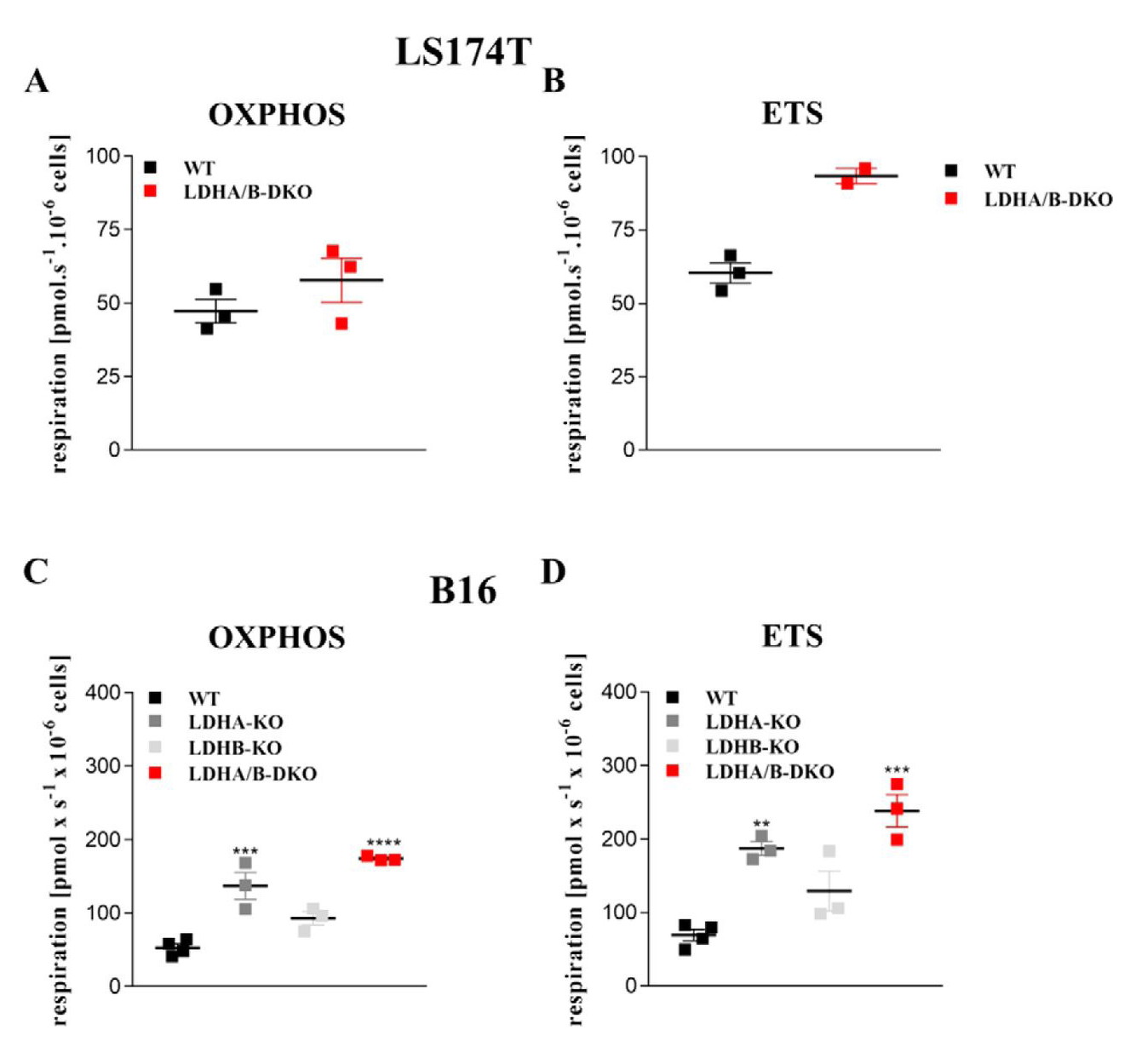
"Most publications state that LDHA mainly reduces pyruvate to lactate, whereas LDHB catalyzes the reverse reaction, lactate oxidation to pyruvate, coupled with NADH formation. However, this assumption was already challenged by Vesell (24.), who showed that the enzymatic activity of purified LDH-5 (four LDHA subunits) resembled that of LDH-1 (four LDHB subunits) at physiologic temperature. Furthermore, in zymography, which combines electrophoresis with activity staining to separate and detect the five LDH isoenzymes, both pyruvate and lactate have proven to be suitable substrates (25.), further supporting the notion that both LDHA and LDHB are capable of catalyzing the conversion of pyruvate to lactate (22., 26.)."
-
@Amazoniac said in cancer:
@Jennifer, are the clinics based on Gerson's protocol in Mexico an option to consider? Battling a relative for one small win at a time can be draining and lead to loss of valuable time. You may also face pressure from the entire family if you oppose their opinion.
The cancer program offered by these clinics would demand a series of interventions at once, him and the rest of the family would probably be less resistant when clinicians are involved, and part of the responsibility would be lifted from you (food preparation, supplements, decisions).
The protocol should rely on the support of substances that you're familiar with. A few examples:
- Aspirin
- Niacin
- Caffeine (through the other end, but still)
- (Pro)poison A
- Thyroid hormones (with Lugol's solution)
Regarding the clinics, some are depressive, but others look like a spa with people on vacation. They can be pricy; however, it's possible to find alternatives, such as the remote (yet supervised) version of the treatment.
We read on occasion the miraculous recoveries after minor changes, but comprehensive approaches increase the chances of success. If you had difficulty convincing him to let go of a beverage, a marked change in diet for therapeutic purposes doesn't seem likely without an external driver.
Nevertheless, in addition to the listed substances, Ray's cascara sagrada (check this out as well) to keep the bowels clean would be simple to apply for now.
Thank you, Gustavo. I appreciate the suggestions. My dad takes aspirin daily, gets provitamin A from mainly dairy and eggs, and though not enemas, he has coffee twice a day and regular elimination. As far as pressure from family goes, I’m the only one now with any real involvement in my dad’s life so the only opinion, and really the only one that matters, is his and he’s set on having conventional treatment. I essentially control his diet, but with my family’s failure to thrive on a diet of predominantly plants, let alone one centered on juice, and my mum’s success treating her cancer with more of an animal-based diet combined with some of Ray’s recommendations, I feel more confident in that than the Gerson Therapy.
-
What about doxycycline? I read a lot of info. on the other forum about its anti-cancer properties.
-
@Amazoniac said in cancer:
@Jennifer, are the clinics based on Gerson's protocol in Mexico an option to consider? Battling a relative for one small win at a time can be draining and lead to loss of valuable time. You may also face pressure from the entire family if you oppose their opinion.
The cancer program offered by these clinics would demand a series of interventions at once, him and the rest of the family would probably be less resistant when clinicians are involved, and part of the responsibility would be lifted from you (food preparation, supplements, decisions).
The protocol should rely on the support of substances that you're familiar with. A few examples:
- Aspirin
- Niacin
- Caffeine (through the other end, but still)
- (Pro)poison A
- Thyroid hormones (with Lugol's solution)
Regarding the clinics, some are depressive, but others look like a spa with people on vacation. They can be pricy; however, it's possible to find alternatives, such as the remote (yet supervised) version of the treatment.
We read on occasion the miraculous recoveries after minor changes, but comprehensive approaches increase the chances of success. If you had difficulty convincing him to let go of a beverage, a marked change in diet for therapeutic purposes doesn't seem likely without an external driver.
Nevertheless, in addition to the listed substances, Ray's cascara sagrada (check this out as well) to keep the bowels clean would be simple to apply for now.
Thank you, Gustavo. I appreciate the suggestions. My dad takes aspirin daily, gets provitamin A from mainly dairy and eggs, and though not enemas, he has coffee twice a day and regular elimination. As far as pressure from family goes, I’m the only one now with any real involvement in my dad’s life so the only opinion, and really the only one that matters, is his and he’s set on having conventional treatment. I essentially control his diet, but with my family’s failure to thrive on a diet of predominantly plants, let alone one centered on juice, and my mum’s success treating her cancer with more of an animal-based diet combined with some of Ray’s recommendations, I feel more confident in that than the Gerson Therapy.
Jennifer,
A diet with rich in animal products is compatible with healing, but failing to thrive on plant-based diets can be advantageous if the approach is tweaked to limit the undernourishment to cancer cells as best as possible. The therapeutic diets are intentionally designed this way and the exclusion of most animal products is not unique to Gerson's protocol, other experimenters arrived at similar conclusions (Koch, Breuss and Kelley are examples). Considering that they dealt with people who were debilitated and wasting away at a dangerous rate, it's probable that your dad could tolerate a restrictive phase fine. Yet, cheese and solid meals are part of Gerson's program.
He's skipping to an aggressive option before giving a chance to the multitude of alternatives available, that could be tried under the right medical supervision.
I know your perspective on cravings, intuition and boundaries, so please don't crush me.
If a marked change in diet is out of question, a share of the nourishment of cancer cells is derived from tissue mobilization, which is something that you can control with supplements.
Regarding Progest-E, its vitamin E is sourced from soybean, that has desirable anti-cancer profile:
Antioxidant Micronutrients | Human Nutrition
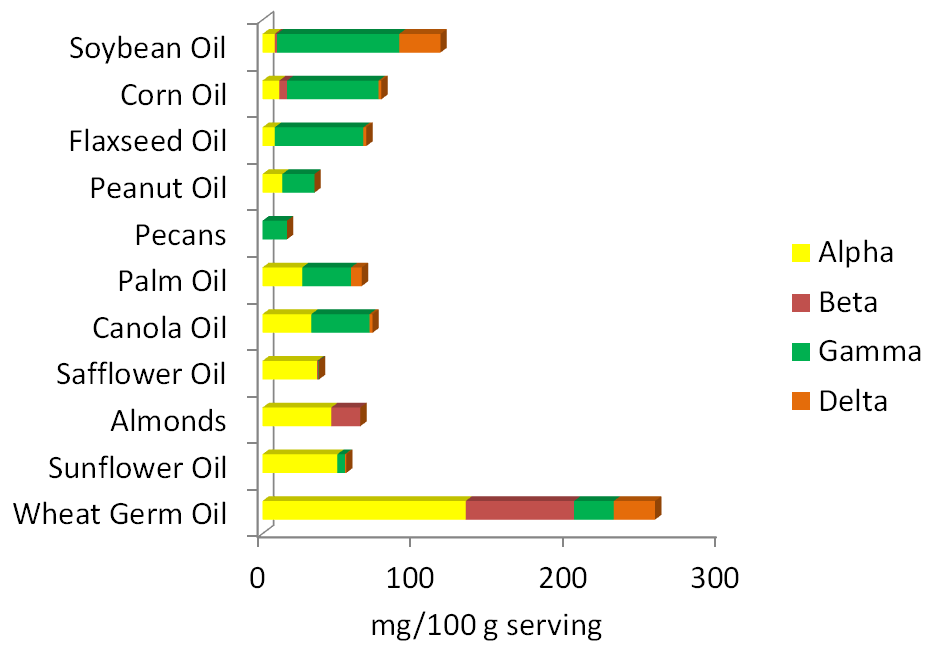
"To evaluate whether various forms of vitamin E act synergistically, we examined the combinations of γT with αT, δT, or γTE that are rich in tissues and/or diets (30). Combinations of γT (25 μM) and δT (10 μM) or γT (25 μM) and γTE (2.5 μM) inhibited proliferation additively or synergistically (Fig. 3). Interestingly, these combinations exhibited antiproliferative potency similar to that of γT alone at 50 μM. αT, which is the most abundant vitamin E form in tissues and supplements, did not significantly enhance or counteract the inhibitory effect from γT alone (Fig. 3B)."
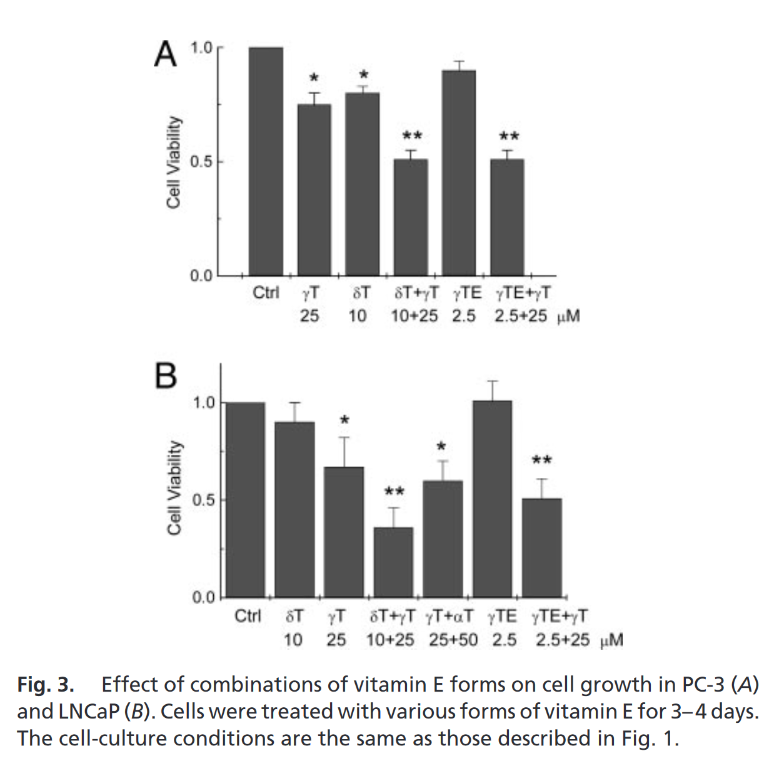
"It is noteworthy that the tumor cell lines we have tested appear to be more sensitive to γT-induced anti-proliferation or apoptosis compared with normal prostate epithelial cells. γT and combinations of vitamin E forms are therefore potentially attractive candidates as anticancer agents."
"It is becoming clear that individual vitamin E forms possess different chemical and biological activities (6) and have distinct tissue distributions (46, 47). We therefore hypothesize that combinations of different forms of vitamin E may be superior to each alone. Consistently, combinations of γT and δT or γT and γTE showed additive or synergistic effects. Importantly, αT did not interfere with the effect of γT, although αT is known to deplete γT in vivo (48). Although high doses of γT supplementation would be necessary to achieve relatively high concentrations of γT, i.e., 50 μM, the combination effect indicates that a similar biological outcome may be achieved by a moderate supplementation with mixed vitamin E forms such as γT and δT or γTE. The significance of this observation awaits further investigation"
Different Roles of Natural Forms of Vitamin E in Chemoprevention and Treatment of Prostate Cancer
"Starting from 2002, traditionally ignored vitamin E forms have been researched on their ability to modulate PCa, including γT, δT, and TEs (mainly γTE and δTE) in preclinical cell and animal studies. In particular, these vitamin E forms show much stronger anti-PCa effects than αT in cell studies, with relative potency concerning antiproliferation and proapoptosis of δTE, γTE > δT > γT >> αT. Further, γT, γTmT, and δT have been found to be effective for inhibiting relatively early-stage PCa, as indicated in carcinogens-induced and genetically engineered PCa models, whereas display modest effects against late stage cancer as indicated in PCa cell-implanted xenograft models. Meanwhile, γTE and δTE are shown to strongly inhibit development of prostate adenocarcinoma in genetically engineered spontaneously tumor-developing models. For this effect, δTE appears to be stronger than δT, the latter being more effective than γT. Additionally, amber evidence also suggests that γTE can block implanted PCa cells associated tumor development in xenograft models and is stronger than γT for this effect. γTE can also enhance anti-PCa effects of chemotherapeutic drugs in mice. Overall, these anti-PCa effects of γT, δTE, γTE, and δTE observed in preclinical studies provide evidence supporting the notion that these compounds may be useful for preventing early stage PCa progression in people at moderate-risk and high-risk of PCa. Considering their good safety, these compounds should be considered in RCT trials for secondary and tertiary (especially γTE and δTE) chemoprevention."
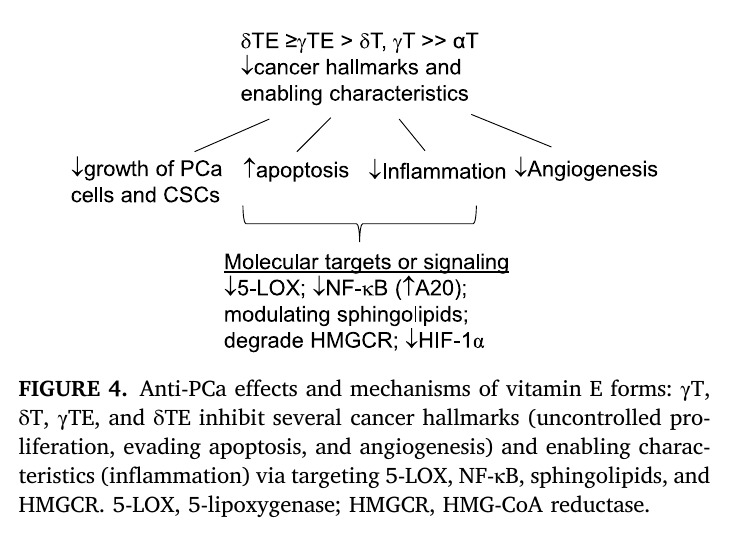
Unknown author:
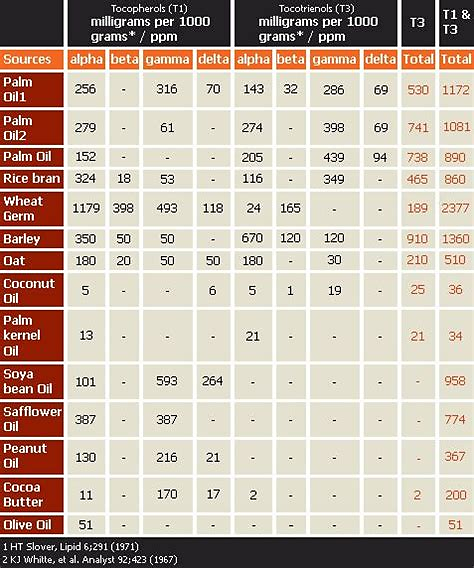
And in line with Summer's comment:
Effects of fenbendazole and vitamin E succinate on the growth and survival of prostate cancer cells
@Jennifer said in New "Mission" of RPF:
It makes me happy to know my log brought people comfort. I wish I had something worth reading, but my log would most likely be just a bunch of random thoughts like my current thoughts on previous eras and how that energy has been passed down through the generations and potentially affected present day health. I’ve been watching Outlander and I think it’s a fantastic show, but brutal. It depicts a draconian time and it made me think of how staying silent and/or suppressing certain emotions thought to be “weak” to avoid persecution and for survival in general, may have an effect on the thyroid in particular. Since the thyroid is located in the throat chakra, the throat chakra being our truth, would not speaking our truth cause that energy that needs to be expressed to get trapped there and wreak havoc on our thyroid function and overall health? Something I find interesting is in First Nations culture, turquoise is believed to be protective to the bones and is often worn around the neck. Turquoise is blue and blue is the color that represents the throat chakra, and the thyroid and parathyroid are the main glands responsible for calcium metabolism and the integrity of our connective tissues, including our bones.
If this is what you refer to as worthless, keep up with the unworthy posts.
Ryke Hamer took the psychophysiological principle to the extreme, but you might find some validity in it.
-
@Amazoniac said in cancer:
It must be best for the methionine restriction to affect its concentration in circulation (or else cells keep acquiring it) and to moderate the one-carbon donors that promote its regeneration.
Methionine restriction may also potentialize the effects of radiation- and chemo-therapies:
Methionine diet restriction both inhibits tumor growth and radiosensitizes RAS-driven sarcoma models [65,66]. Methionine restriction also improves the efficacy of chemotherapeutic drugs. For example, in tumor-bearing rats, depleting methionine increased the efficacy of vincristine [67].
From Interactions between Radiation and One-Carbon Metabolism, a review paper published in Int J Mol Sci. 2022 Feb 8;23(3):1919.
-
Thank you for all the information @Amazoniac and @Lejeboca. I appreciate it.
I would never crush you, Gustavo. Haha! You’re only trying to help. Yes, I do believe in following intuition and cravings, but I don't have much say in the matter anyway. My dad is only 68 and of sound mind so the choice is his. I’ve had many conversations with him about biochemistry, physiology and prostate cancer, and knowing how the medical establishment failed my mum and I, he's fully aware of the potential downsides of conventional medicine, yet he’s firm in his decision to follow doctor's orders and it’s impossible to convince him otherwise, especially when his mother overcame far more aggressive cancers twice, both via conventional treatments, and lived to 96.
In regards to plant-based diets, no doubt they have been successful in treating cancer, but having spent over 20 years in the plant-based community, I know many horror stories and my ailing family members who followed plant-based protocols (Gerson Therapy, Arnold Ehret’s Mucusless Diet Healing System, Dr. Morse’s protocol) deteriorated and/or died. In contrast, my mum consumed a diet consisting of milk, cheese, eggs, meat, buttered sourdough bread, ice cream, chocolate, coffee and all natural blueberry soda for 6 weeks leading up to her hysterectomy and when the surgeons went to remove her uterus, they were shocked to find that the cancer that had invaded the surrounding tissue was gone and she didn’t require further treatment. Anyhow, I appreciate you taking the time to help.

-
@Jennifer I have found that high amounts of THC shrink almost all tumors and can fix cancer. You need around 1 gram a day for a month or so. See CannabisHealthRadio.com and listen to some of the success stories. I’ve witnessed a number of them myself on various Facebook groups.
You can use suppositories (rectal) which is what we have done (with a family member with cancer.) It doesn’t get you high, just mildly tranquilized but no problem working or driving or functioning.
I am pretty much convinced this is the way to go for anyone with cancer. I haven’t found a cancer that won’t respond. I know some people have found it doesn’t work. But I wonder if they used THC, and how much they used. It has to be THC, not CBD, and a very high amount.
Rectal suppositories gets the THC right into the interstitium, every cell in the body is bathed in it.
-
Amazing. Thank you for sharing, @Ecstatic_Hamster. I’ll listen to the success stories, for sure. Thyroid and Progest-E have been effective, too. My mum used both to treat her cancer.